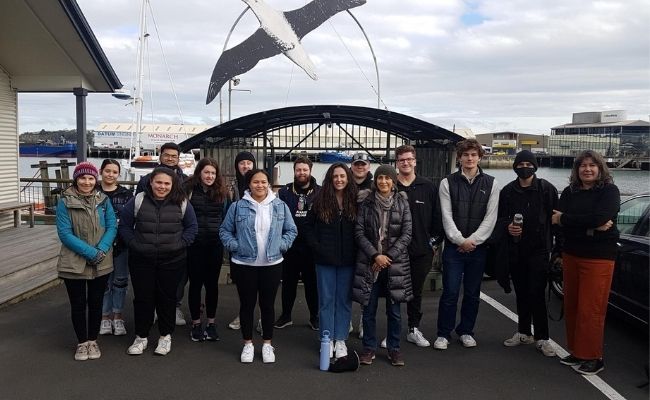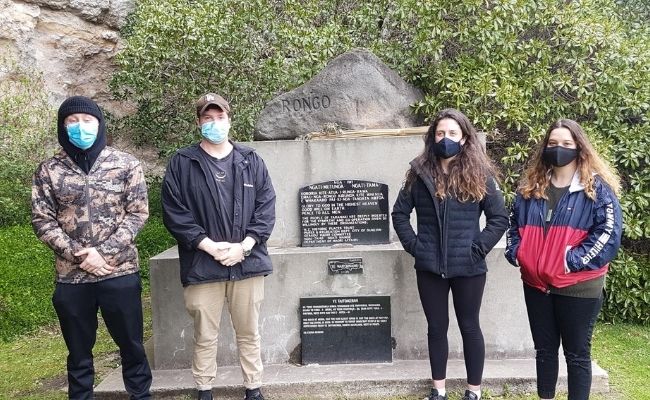
Te Manawa Tītī, meaning the heart of the Mutton Bird, is a programme specifically for Māori business students.
Māori leadership is a crucial aspect for the future of any kiwi business. For the Otago School of Business, this is the reason a new programme which aims to develop leadership skills in promising Māori students has been developed.
Te Manawa Tītī, meaning the heart of the Mutton Bird, is a programme specifically for Māori business students and provides the opportunity to work alongside Māori businesses in Otago.
Senior Research Fellow and Associate Dean, Katharina Ruckstuhl says that for Māori employees, it can be the case that an employer will look to an individual to supply the 'Māori perspective'.
“Many individuals find this challenging. This programme will give an opportunity to discuss some of these issues and learn about broader Māori community aspirations where Māori values and perspectives are practised as part of day-to-day operations.
“This is the first year we have run the programme and our focus is on endurance, planning for the long haul of your career and growing our leaders. The students recently took a trip to 'Rongo', which is the memorial site to prisoners from Parihaka who literally built parts of Dunedin. We want to understand different forms of leadership by learning from past inspirational leaders such as Te Whiti and Tohu and their response of passive resistance. Learning from Māori models can provide inspiration for new ways to do business.”
The students will be learning first-hand what it means to be a Māori business and plan to take field trips to places such as the Orokonui Ecosanctuary and Te Nohoaka o Tukiauau (Sinclair Wetlands).
For Te Wiki o Te Reo Māori (Māori Language Week) this year, Kaiāwhina Māori and Business student, Taikawa Tamati-Elliffe lead staff and students in Zoom lessons as part of Te Manawa Tītī's outreach.
“We taught them a karakia to both open and close meetings and a waiata so that whenever we have meetings at Business School, we can sing together. It was a little tricky with COVID-19 restrictions so we did it online.”

The students visit 'Rongo' - the memorial to Parihaka prisoners.
For student Sam Kenneally the programme has been an enlightening experience with valuable lessons so far.
"I found the field trip to explore Parihaka and its significance in Dunedin to be quite eye-opening. I try to consider myself as well read and knowledgeable on the history of New Zealand and specifically Dunedin as I've resided here for the last five years but this trip highlighted how wrong I was in this assumption.
“I was shocked to learn of slaves that were sent from Taranaki to Dunedin due to the fact they were peacefully resisting an infringement of their land rights by Pakeha. I was also shocked to learn about the ill treatment of these people that were tasked with backbreaking work such as building roads. It really made me think about the suffering of Māori that has occurred throughout New Zealand that is not taught in school or discussed in open forums, things that I am yet to learn but feel the need to.”
Sam says this has highlighted to him the importance of knowing history in order to better impact the future both as a society and a business.
“I think that to be a well-rounded future leader of Māori heritage one must know of the past wrongs committed against our people and other marginalised groups. These past events can act as a driver for a future where race, religion and ideology are not precursors to how people should be treated. Instead, these factors should be desirable as they allow more diversity of perspectives and ideas that have been moulded by the experiences these groups have had."
Te Manawatītī is wrapping up at the end of semester 2 but will pick up again in 2022 to a select group of Māori business students ready to develop their leadership skills.
Kōrero by Internal Communications Adviser, Chelsea McRae







